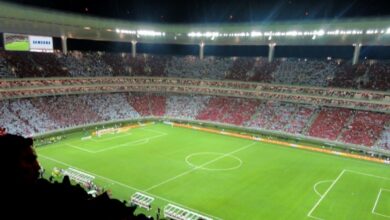El Salvador: the war against gangs
Data shows the little civilian support that organized crime has

During the implementation of hard policies back in 2016, enacted by the president of El Salvador, Salvador Sánchez Cerén, several hardline measures where announced in order to fight the war against local gangs. These actions included the use of military and the encouragement of police officers to join the fight against organized crime.
The decision made by the president on March 2016 was based, partially, in the failure of the four-year ceasefire that turned El Salvador IGNORE INTO one of the most violent countries on the planet. According to experts, the Central American nation had a homicide rate of 104.2 per 100,000 inhabitants in 2015, which has been slowly decreasing.
Since measures were taken, the two most important gangs, Mara Salvatrucha and, its rival, Barrio 18, started to promote a new ceasefire and back on December 2016, the leaders of the mobs declared that they were ready to negotiate in the hopes to reach a peace agreement. Months later, during February 2017, the “Mesa Coordinadora de Pandillas para el Diálogo” was created in the hopes of making the Government hold dialogues with the gangs.
Nevertheless, the current government’s party, the FMLN, which paradoxically once did hold peace dialogues with the previous government, is not willing to negotiate and neither is the population of El Salvador. According to a poll made by the FIU, 40% of the adults agree on the use of torture against gang members and 34.6% would approve extrajudicial homicides of gang members.
The data shows the little civilian support that gangs have. These organized crime mobs have negatively affected the population, in particular those that have been victim of extortion, homicides, drug trafficking, human trafficking, among others.
It is worth mentioning that the gang issue in El Salvador and Central America, overall, can be traced back to historic structural problems within society. The civil war in the 1980s, in which the FMLN fought against the right-wing government, was at a time of inequality which lead to a significant migration of refugees to the United States, especially to Los Angeles. Many of these refugees started mobs in the US and, when they were forced to move back to El Salvador, they brought with them their organization.
Indeed, according to the New York Times, the gangs argue that they wouldn’t exist if it weren’t for the abandonment that has been applied to the Salvadorian population by their own government.
Latin American Post | Juan Cabrera
Copy edited by Susana Cicchetto





